
WeClone
欢迎star⭐。使用微信聊天记录微调大语言模型,使用微信语音消息大模➕0.5B大模型实现高质量声音克隆,并绑定到微信机器人,实现自己的数字分身。 数字克隆/数字分身/声音克隆/LLM/大语言模型/微信聊天机器人/LoRA
Stars: 368
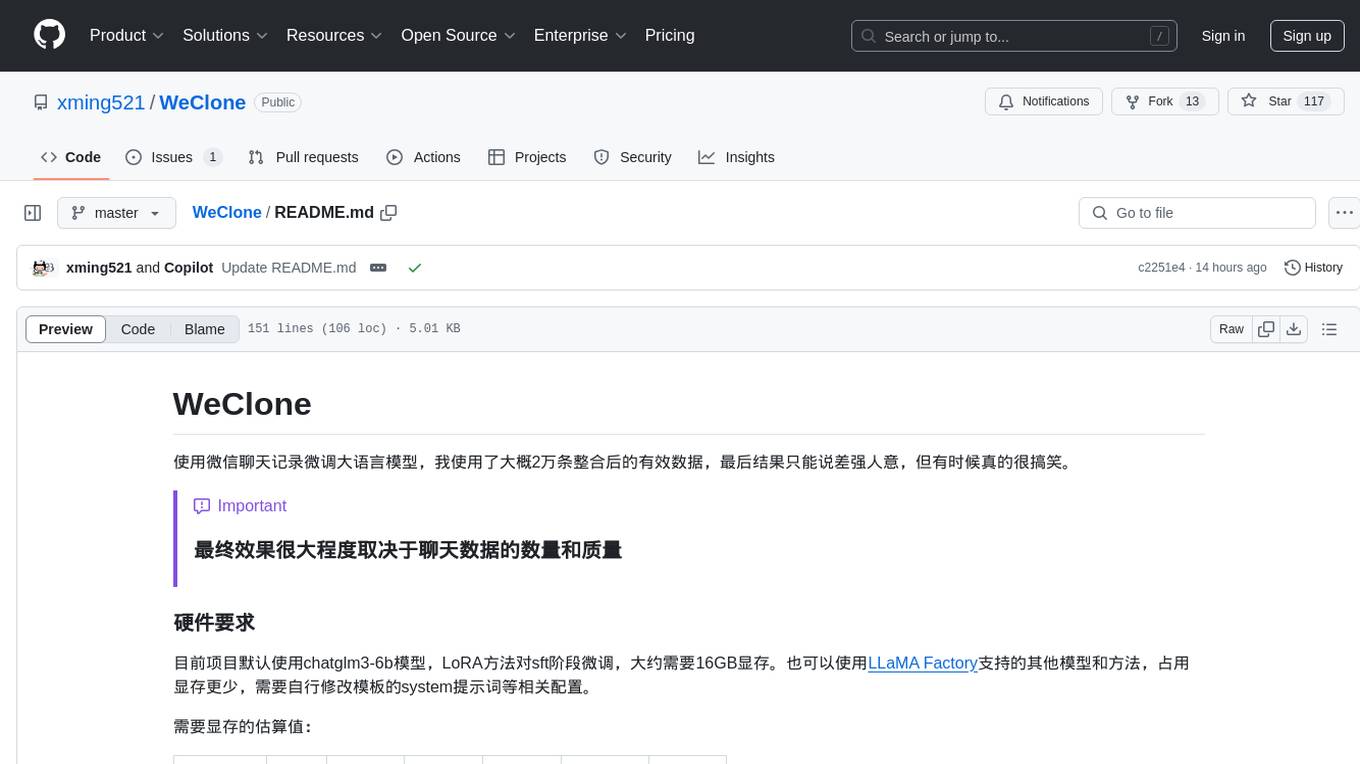
WeClone is a tool that fine-tunes large language models using WeChat chat records. It utilizes approximately 20,000 integrated and effective data points, resulting in somewhat satisfactory outcomes that are occasionally humorous. The tool's effectiveness largely depends on the quantity and quality of the chat data provided. It requires a minimum of 16GB of GPU memory for training using the default chatglm3-6b model with LoRA method. Users can also opt for other models and methods supported by LLAMA Factory, which consume less memory. The tool has specific hardware and software requirements, including Python, Torch, Transformers, Datasets, Accelerate, and other optional packages like CUDA and Deepspeed. The tool facilitates environment setup, data preparation, data preprocessing, model downloading, parameter configuration, model fine-tuning, and inference through a browser demo or API service. Additionally, it offers the ability to deploy a WeChat chatbot, although users should be cautious due to the risk of account suspension by WeChat.
README:
- 💬 使用微信聊天记录微调LLM
- 🎙️ 使用微信语音消息➕0.5B大模型实现高质量声音克隆 👉WeClone-audio
- 🔗 绑定到微信机器人,实现自己的数字分身
[!TIP] 新特性:WeClone-audio 模块,支持对微信语音进行克隆。
[!NOTE] 聊天机器人后续使用 AstrBot 实现
[!IMPORTANT] 微调LLM最终效果很大程度取决于聊天数据的数量和质量
目前项目默认使用chatglm3-6b模型,LoRA方法对sft阶段微调,大约需要16GB显存。也可以使用LLaMA Factory支持的其他模型和方法,占用显存更少,需要自行修改模板的system提示词等相关配置。
需要显存的估算值:
| 方法 | 精度 | 7B | 14B | 30B | 70B |
xB |
|---|---|---|---|---|---|---|
Full (bf16 or fp16) |
32 | 120GB | 240GB | 600GB | 1200GB |
18xGB |
Full (pure_bf16) |
16 | 60GB | 120GB | 300GB | 600GB |
8xGB |
| Freeze/LoRA/GaLore/APOLLO/BAdam | 16 | 16GB | 32GB | 64GB | 160GB |
2xGB |
| QLoRA | 8 | 10GB | 20GB | 40GB | 80GB |
xGB |
| QLoRA | 4 | 6GB | 12GB | 24GB | 48GB |
x/2GB |
| QLoRA | 2 | 4GB | 8GB | 16GB | 24GB |
x/4GB |
建议使用 uv,这是一个非常快速的 Python 环境管理器。安装uv后,您可以使用以下命令创建一个新的Python环境并安装依赖项,注意这不包含xcodec(音频克隆)功能的依赖:
git clone https://github.com/xming521/WeClone.git
cd WeClone
uv venv .venv --python=3.9
source .venv/bin/activate
uv pip install --group main -e . [!NOTE] 训练以及推理相关配置统一在文件settings.json
请使用PyWxDump提取微信聊天记录。下载软件并解密数据库后,点击聊天备份,导出类型为CSV,可以导出多个联系人或群聊,然后将导出的位于wxdump_tmp/export 的 csv 文件夹放在./data目录即可,也就是不同人聊天记录的文件夹一起放在 ./data/csv。 示例数据位于data/example_chat.csv。
项目默认去除了数据中的手机号、身份证号、邮箱、网址。还提供了一个禁用词词库blocked_words,可以自行添加需要过滤的词句(会默认去掉包括禁用词的整句)。
执行 ./make_dataset/csv_to_json.py 脚本对数据进行处理。
在同一人连续回答多句的情况下,有三种处理方式:
| 文件 | 处理方式 |
|---|---|
| csv_to_json.py | 用逗号连接 |
| csv_to_json-单句回答.py(已废弃) | 只选择最长的回答作为最终数据 |
| csv_to_json-单句多轮.py | 放在了提示词的'history'中 |
首选在Hugging Face下载ChatGLM3 模型。如果您在 Hugging Face 模型的下载中遇到了问题,可以通过下述方法使用魔搭社区,后续训练推理都需要先执行export USE_MODELSCOPE_HUB=1来使用魔搭社区的模型。
由于模型较大,下载过程比较漫长请耐心等待。
export USE_MODELSCOPE_HUB=1 # Windows 使用 `set USE_MODELSCOPE_HUB=1`
git lfs install
git clone https://www.modelscope.cn/ZhipuAI/chatglm3-6b.git魔搭社区的modeling_chatglm.py文件需要更换为Hugging Face的
-
(可选)修改 settings.json选择本地下载好的其他模型。
-
修改
per_device_train_batch_size以及gradient_accumulation_steps来调整显存占用。 -
可以根据自己数据集的数量和质量修改
num_train_epochs、lora_rank、lora_dropout等参数。
运行 src/train_sft.py 进行sft阶段微调,本人loss只降到了3.5左右,降低过多可能会过拟合,我使用了大概2万条整合后的有效数据。
python src/train_sft.pypip install deepspeed
deepspeed --num_gpus=使用显卡数量 src/train_sft.pypython ./src/web_demo.py python ./src/api_service.pypython ./src/api_service.py
python ./src/test_model.py[!IMPORTANT]
微信有封号风险,建议使用小号,并且必须绑定银行卡才能使用
python ./src/api_service.py # 先启动api服务
python ./src/wechat_bot/main.py 默认在终端显示二维码,扫码登录即可。可以私聊或者在群聊中@机器人使用。
Todo
Todo
[!CAUTION] 请勿用于非法用途,否则后果自负。
- 本项目仅供学习交流使用,请勿用于非法用途,请勿用于非法用途,请勿用于非法用途,否则后果自负。
- 用户理解并同意,任何违反法律法规、侵犯他人合法权益的行为,均与本项目及其开发者无关,后果由用户自行承担。
- 您应该在下载保存使用本项目的24小时内,删除本项目的源代码和程序;超出此期限的任何使用行为,一概与本项目及其开发者无关。
- 本项目仅允许在授权情况下使用数据训练,严禁用于非法目的,否则自行承担所有相关责任;用户如因违反此规定而引发的任何法律责任,将由用户自行承担,与本项目及其开发者无关。
- 严禁用于窃取他人隐私,严禁用于窃取他人隐私,严禁用于窃取他人隐私,否则自行承担所有相关责任。
- 下载、保存、进一步浏览源代码或者下载安装、编译使用本程序,表示你同意本警告,并承诺遵守它;
- 禁止利用本项目的相关技术从事非法测试或渗透,禁止利用本项目的相关代码或相关技术从事任何非法工作,如因此产生的一切不良后果与本项目及其开发者无关。
- 任何因此产生的不良后果,包括但不限于数据泄露、系统瘫痪、侵犯隐私等,均与本项目及其开发者无关,责任由用户自行承担。
- 本免责声明可能根据项目运行情况和法律法规的变化进行修改和调整。用户应定期查阅本页面以获取最新版本的免责声明,使用本项目时应遵守最新版本的免责声明。
-
除本免责声明规定外,用户在使用本项目过程中应遵守相关的法律法规和道德规范。对于因用户违反相关规定而引发的任何纠纷或损失,本项目及其开发者不承担任何责任。
-
请用户慎重阅读并理解本免责声明的所有内容,确保在使用本项目时严格遵守相关规定。
请用户慎重阅读并理解本免责声明的所有内容,确保在使用本项目时严格遵守相关规定。
For Tasks:
Click tags to check more tools for each tasksFor Jobs:
Alternative AI tools for WeClone
Similar Open Source Tools

WeClone
WeClone is a tool that fine-tunes large language models using WeChat chat records. It utilizes approximately 20,000 integrated and effective data points, resulting in somewhat satisfactory outcomes that are occasionally humorous. The tool's effectiveness largely depends on the quantity and quality of the chat data provided. It requires a minimum of 16GB of GPU memory for training using the default chatglm3-6b model with LoRA method. Users can also opt for other models and methods supported by LLAMA Factory, which consume less memory. The tool has specific hardware and software requirements, including Python, Torch, Transformers, Datasets, Accelerate, and other optional packages like CUDA and Deepspeed. The tool facilitates environment setup, data preparation, data preprocessing, model downloading, parameter configuration, model fine-tuning, and inference through a browser demo or API service. Additionally, it offers the ability to deploy a WeChat chatbot, although users should be cautious due to the risk of account suspension by WeChat.
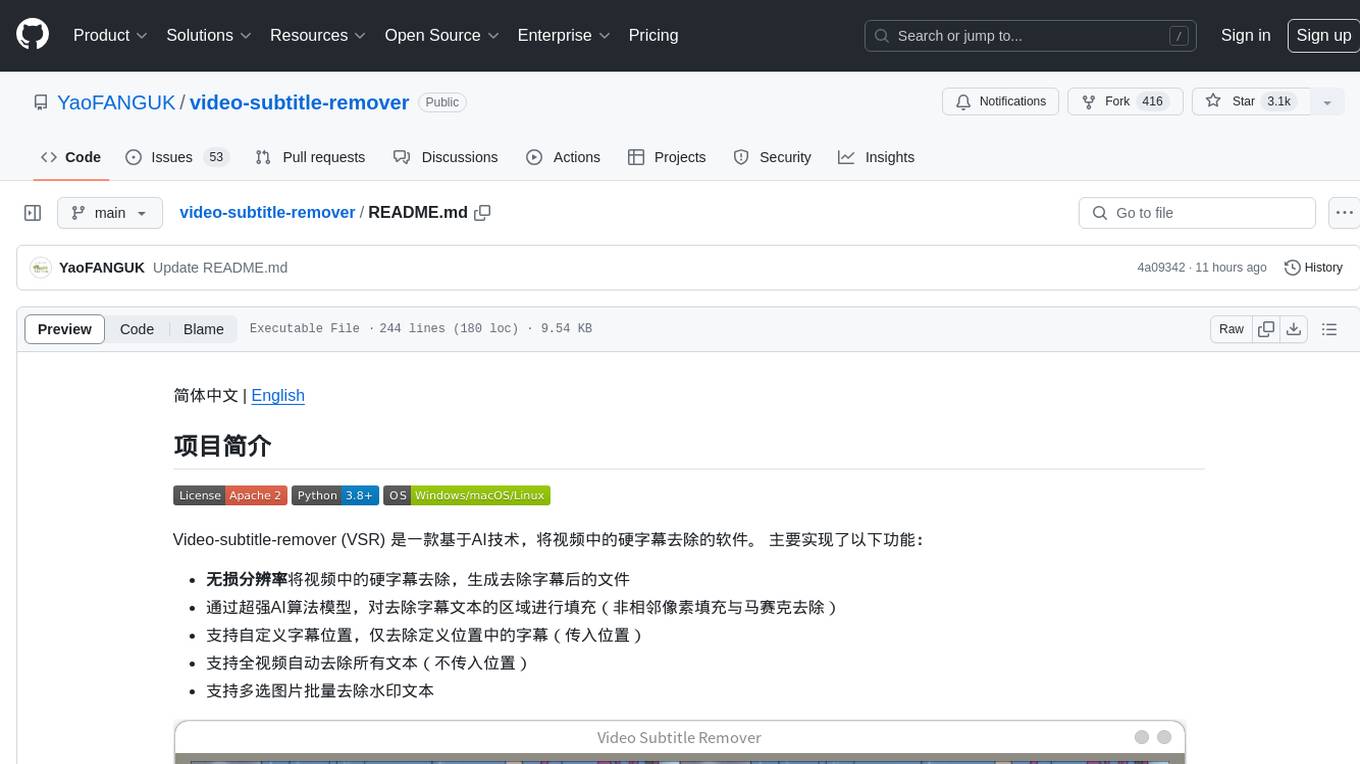
video-subtitle-remover
Video-subtitle-remover (VSR) is a software based on AI technology that removes hard subtitles from videos. It achieves the following functions: - Lossless resolution: Remove hard subtitles from videos, generate files with subtitles removed - Fill the region of removed subtitles using a powerful AI algorithm model (non-adjacent pixel filling and mosaic removal) - Support custom subtitle positions, only remove subtitles in defined positions (input position) - Support automatic removal of all text in the entire video (no input position required) - Support batch removal of watermark text from multiple images.
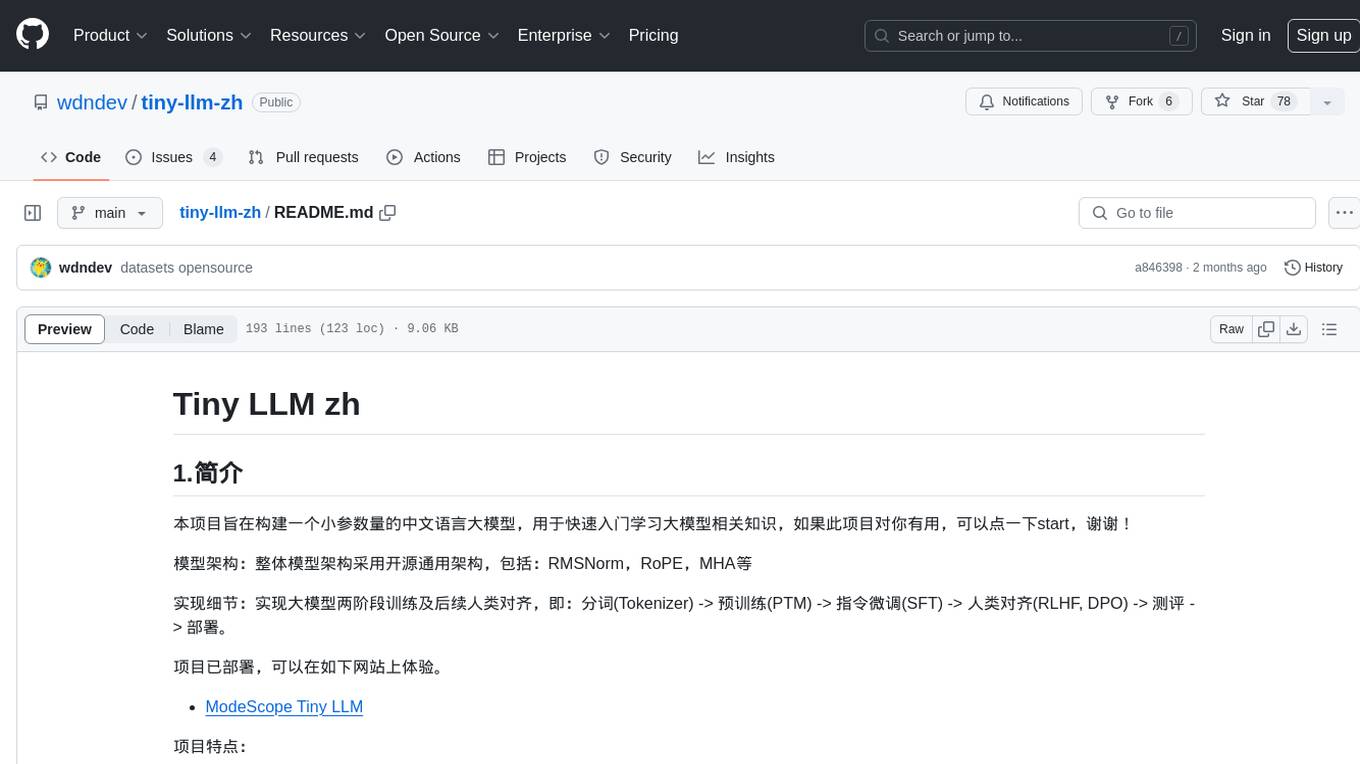
tiny-llm-zh
Tiny LLM zh is a project aimed at building a small-parameter Chinese language large model for quick entry into learning large model-related knowledge. The project implements a two-stage training process for large models and subsequent human alignment, including tokenization, pre-training, instruction fine-tuning, human alignment, evaluation, and deployment. It is deployed on ModeScope Tiny LLM website and features open access to all data and code, including pre-training data and tokenizer. The project trains a tokenizer using 10GB of Chinese encyclopedia text to build a Tiny LLM vocabulary. It supports training with Transformers deepspeed, multiple machine and card support, and Zero optimization techniques. The project has three main branches: llama2_torch, main tiny_llm, and tiny_llm_moe, each with specific modifications and features.
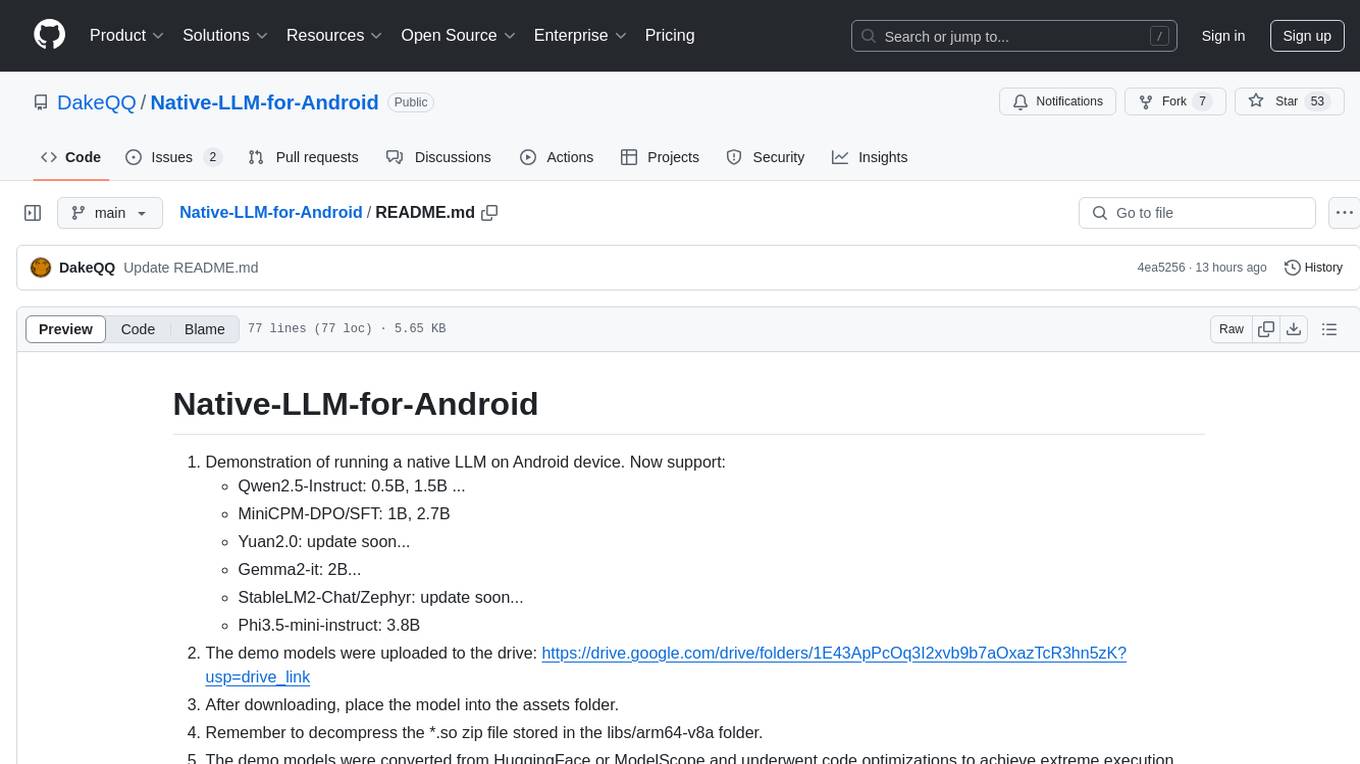
Native-LLM-for-Android
This repository provides a demonstration of running a native Large Language Model (LLM) on Android devices. It supports various models such as Qwen2.5-Instruct, MiniCPM-DPO/SFT, Yuan2.0, Gemma2-it, StableLM2-Chat/Zephyr, and Phi3.5-mini-instruct. The demo models are optimized for extreme execution speed after being converted from HuggingFace or ModelScope. Users can download the demo models from the provided drive link, place them in the assets folder, and follow specific instructions for decompression and model export. The repository also includes information on quantization methods and performance benchmarks for different models on various devices.
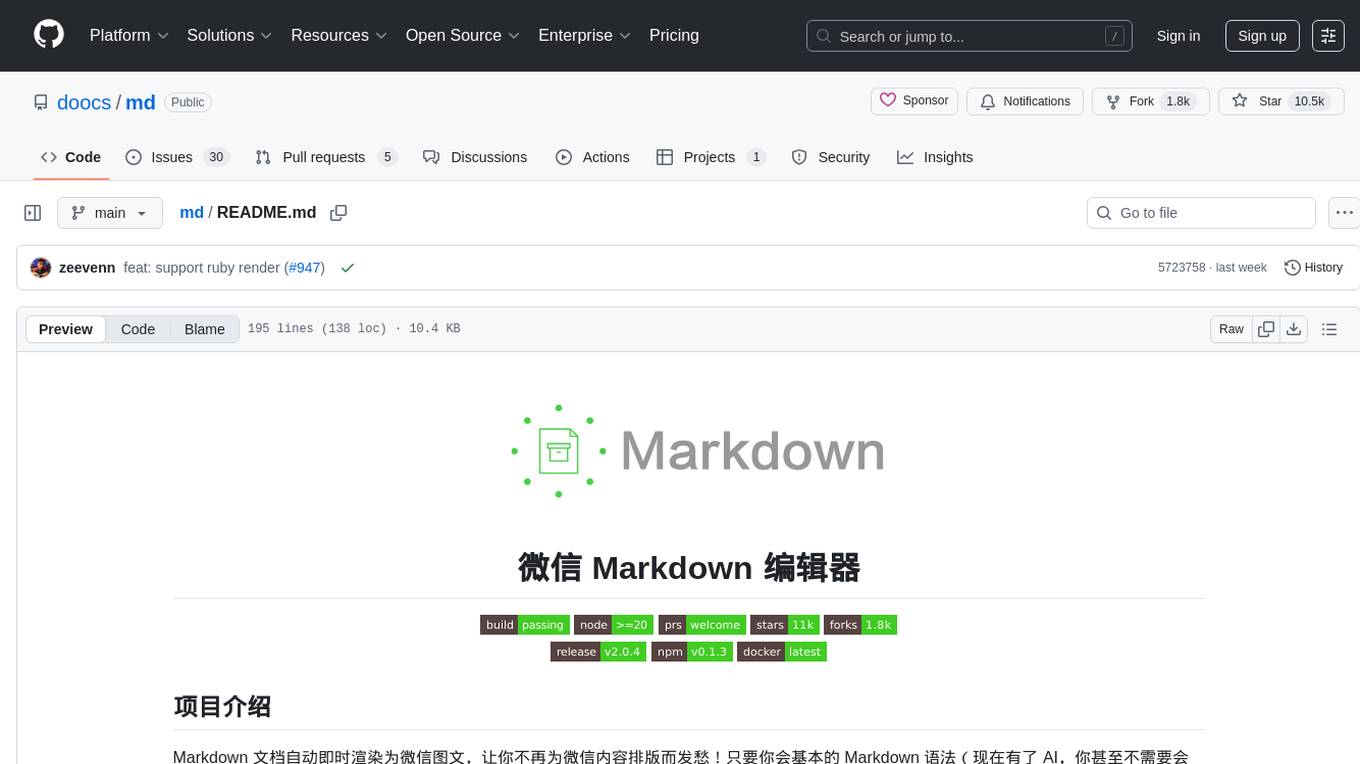
md
The WeChat Markdown editor automatically renders Markdown documents as WeChat articles, eliminating the need to worry about WeChat content layout! As long as you know basic Markdown syntax (now with AI, you don't even need to know Markdown), you can create a simple and elegant WeChat article. The editor supports all basic Markdown syntax, mathematical formulas, rendering of Mermaid charts, GFM warning blocks, PlantUML rendering support, ruby annotation extension support, rich code block highlighting themes, custom theme colors and CSS styles, multiple image upload functionality with customizable configuration of image hosting services, convenient file import/export functionality, built-in local content management with automatic draft saving, integration of mainstream AI models (such as DeepSeek, OpenAI, Tongyi Qianwen, Tencent Hanyuan, Volcano Ark, etc.) to assist content creation.
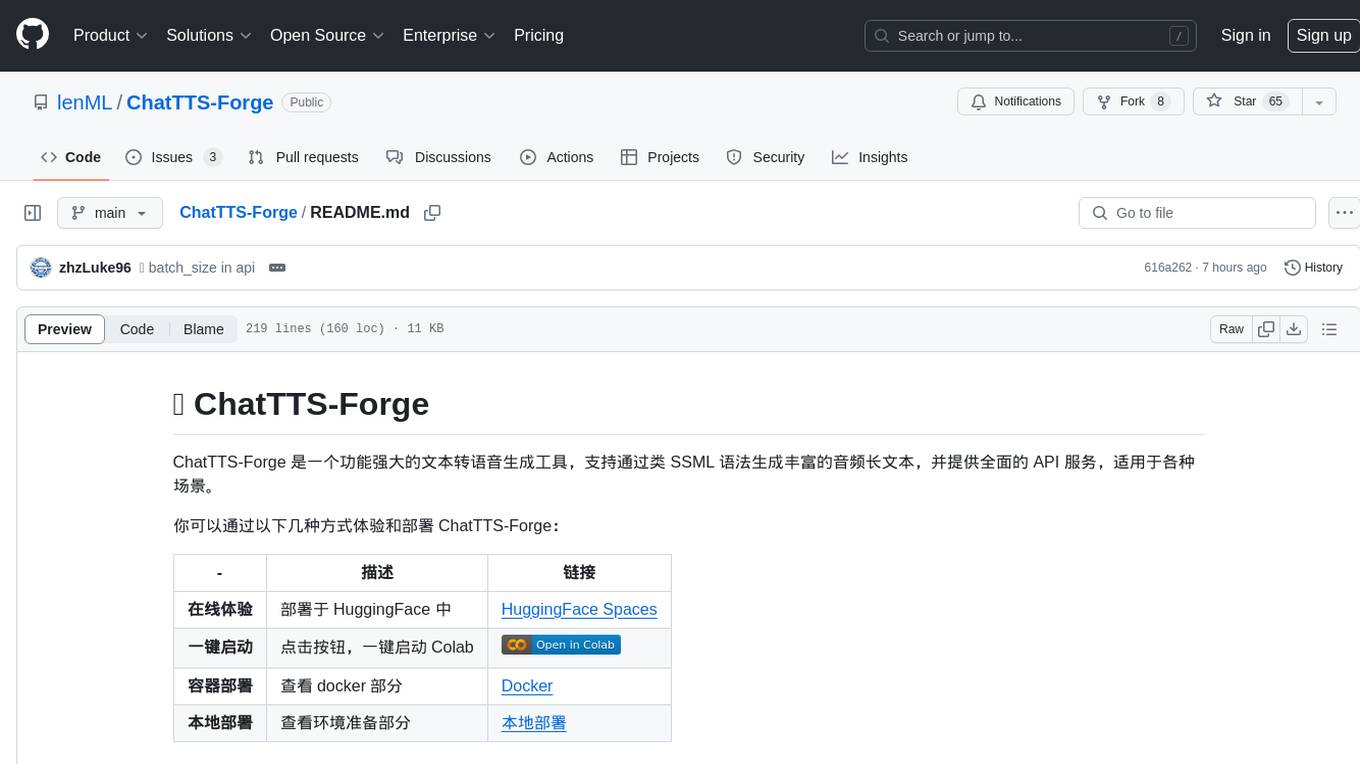
ChatTTS-Forge
ChatTTS-Forge is a powerful text-to-speech generation tool that supports generating rich audio long texts using a SSML-like syntax and provides comprehensive API services, suitable for various scenarios. It offers features such as batch generation, support for generating super long texts, style prompt injection, full API services, user-friendly debugging GUI, OpenAI-style API, Google-style API, support for SSML-like syntax, speaker management, style management, independent refine API, text normalization optimized for ChatTTS, and automatic detection and processing of markdown format text. The tool can be experienced and deployed online through HuggingFace Spaces, launched with one click on Colab, deployed using containers, or locally deployed after cloning the project, preparing models, and installing necessary dependencies.
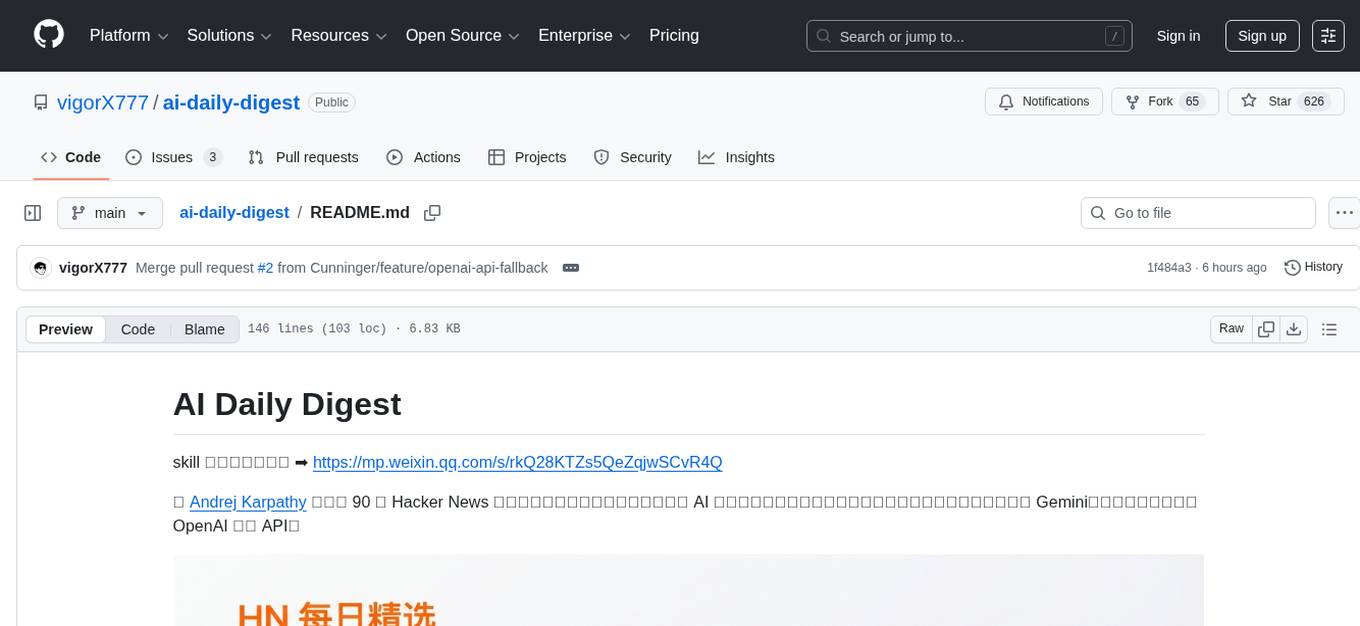
ai-daily-digest
AI Daily Digest is a tool that fetches the latest articles from the top 90 Hacker News technology blogs recommended by Andrej Karpathy. It uses AI multi-dimensional scoring to curate a structured daily digest. The tool supports Gemini by default and can automatically degrade to OpenAI compatible API. It offers a five-step processing pipeline including RSS fetching, time filtering, AI scoring and classification, AI summarization and translation, and trend summarization. The generated daily digest includes sections like today's highlights, must-read articles, data overview, and categorized article lists. The tool is designed to be dependency-free, bilingual, with structured summaries, visual statistics, intelligent categorization, trend insights, and persistent configuration memory.
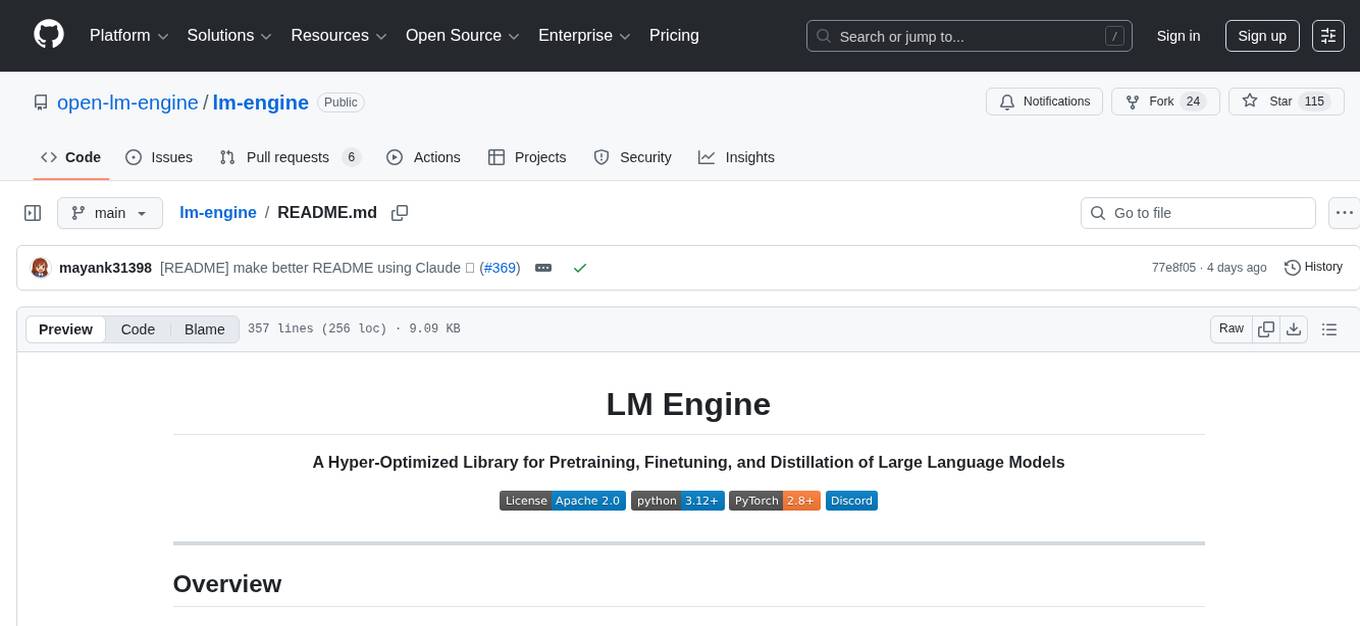
lm-engine
LM Engine is a research-grade, production-ready library for training large language models at scale. It provides support for multiple accelerators including NVIDIA GPUs, Google TPUs, and AWS Trainiums. Key features include multi-accelerator support, advanced distributed training, flexible model architectures, HuggingFace integration, training modes like pretraining and finetuning, custom kernels for high performance, experiment tracking, and efficient checkpointing.
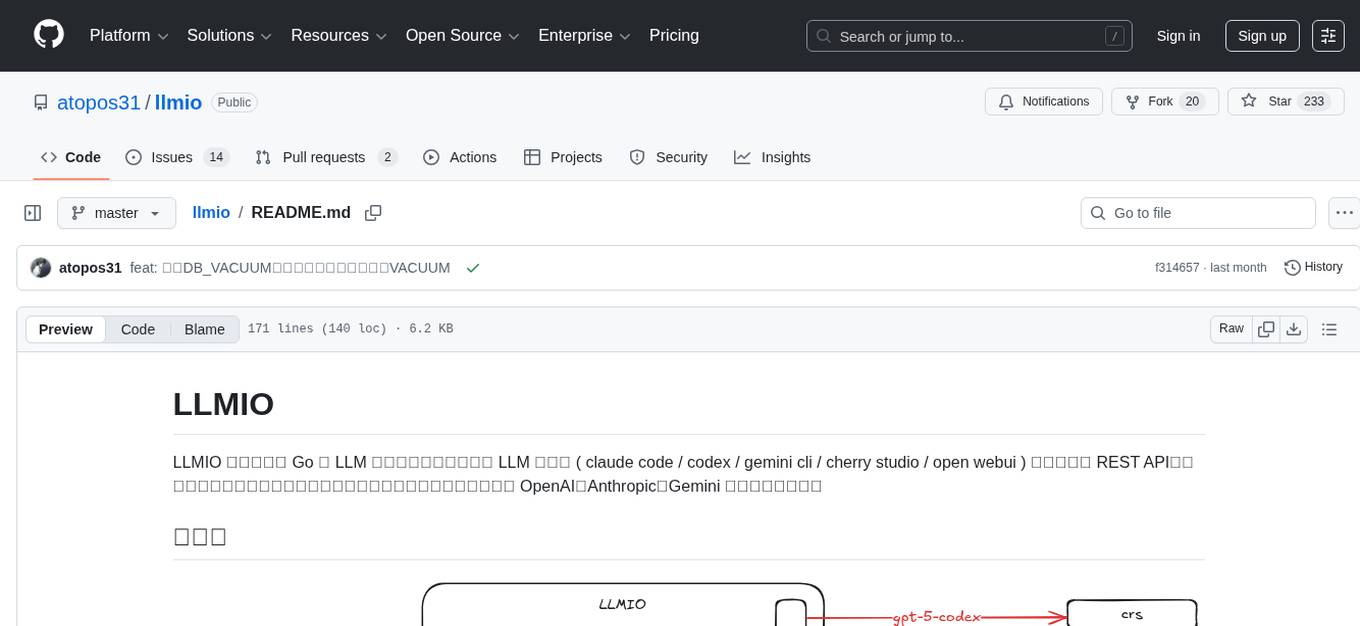
llmio
LLMIO is a Go-based LLM load balancing gateway that provides a unified REST API, weight scheduling, logging, and modern management interface for your LLM clients. It helps integrate different model capabilities from OpenAI, Anthropic, Gemini, and more in a single service. Features include unified API compatibility, weight scheduling with two strategies, visual management dashboard, rate and failure handling, and local persistence with SQLite. The tool supports multiple vendors' APIs and authentication methods, making it versatile for various AI model integrations.
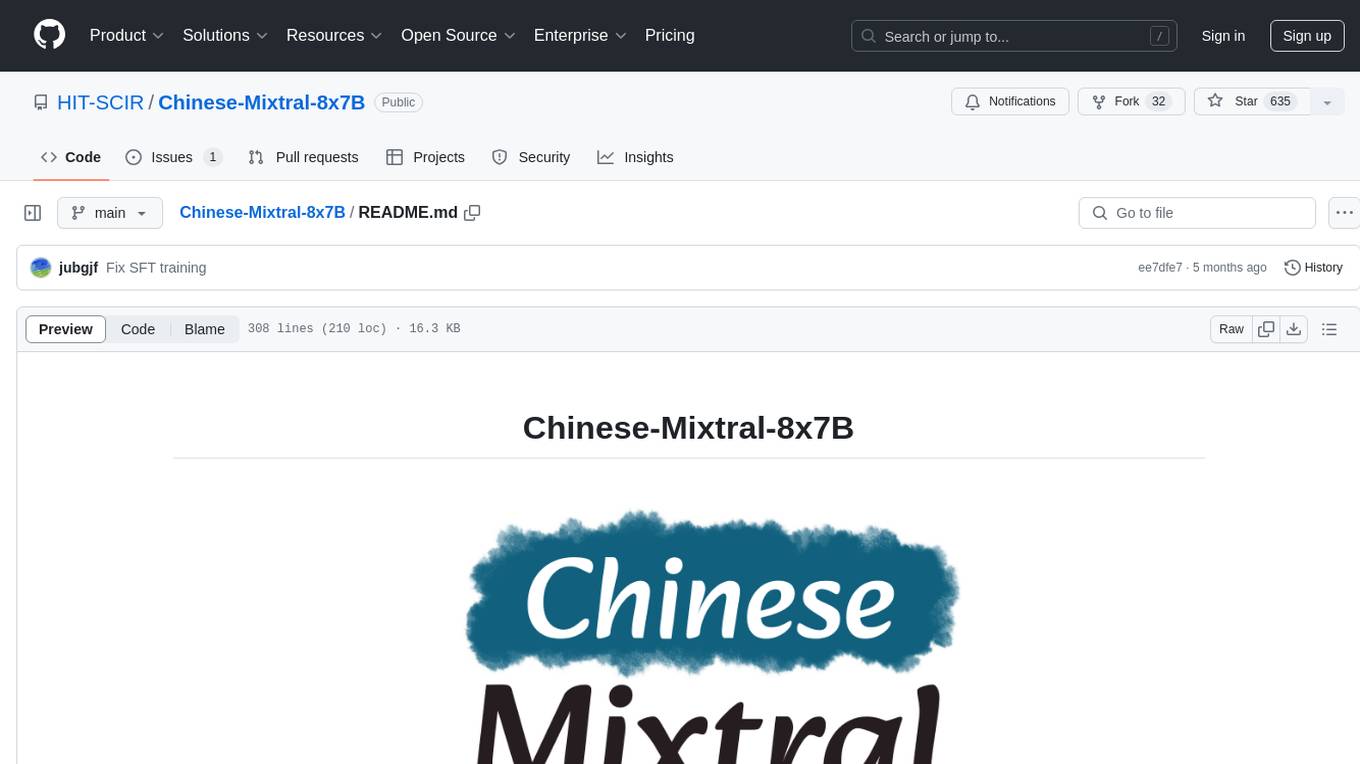
Chinese-Mixtral-8x7B
Chinese-Mixtral-8x7B is an open-source project based on Mistral's Mixtral-8x7B model for incremental pre-training of Chinese vocabulary, aiming to advance research on MoE models in the Chinese natural language processing community. The expanded vocabulary significantly improves the model's encoding and decoding efficiency for Chinese, and the model is pre-trained incrementally on a large-scale open-source corpus, enabling it with powerful Chinese generation and comprehension capabilities. The project includes a large model with expanded Chinese vocabulary and incremental pre-training code.
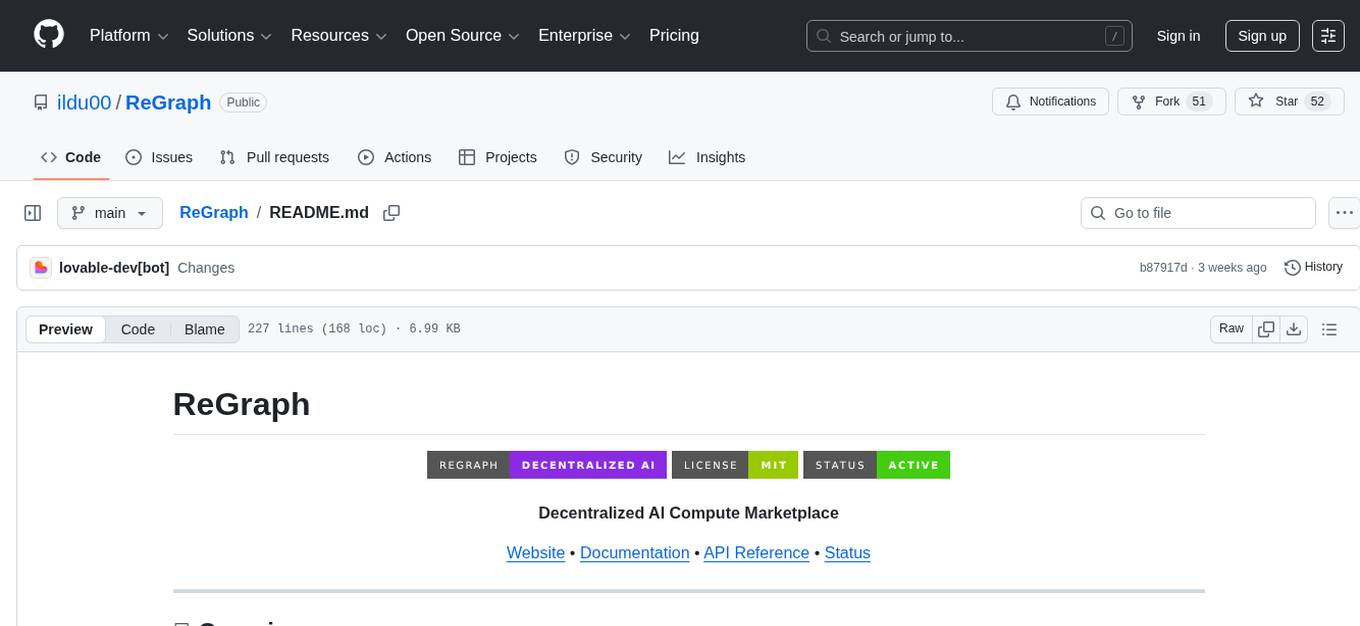
ReGraph
ReGraph is a decentralized AI compute marketplace that connects hardware providers with developers who need inference and training resources. It democratizes access to AI computing power by creating a global network of distributed compute nodes. It is cost-effective, decentralized, easy to integrate, supports multiple models, and offers pay-as-you-go pricing.
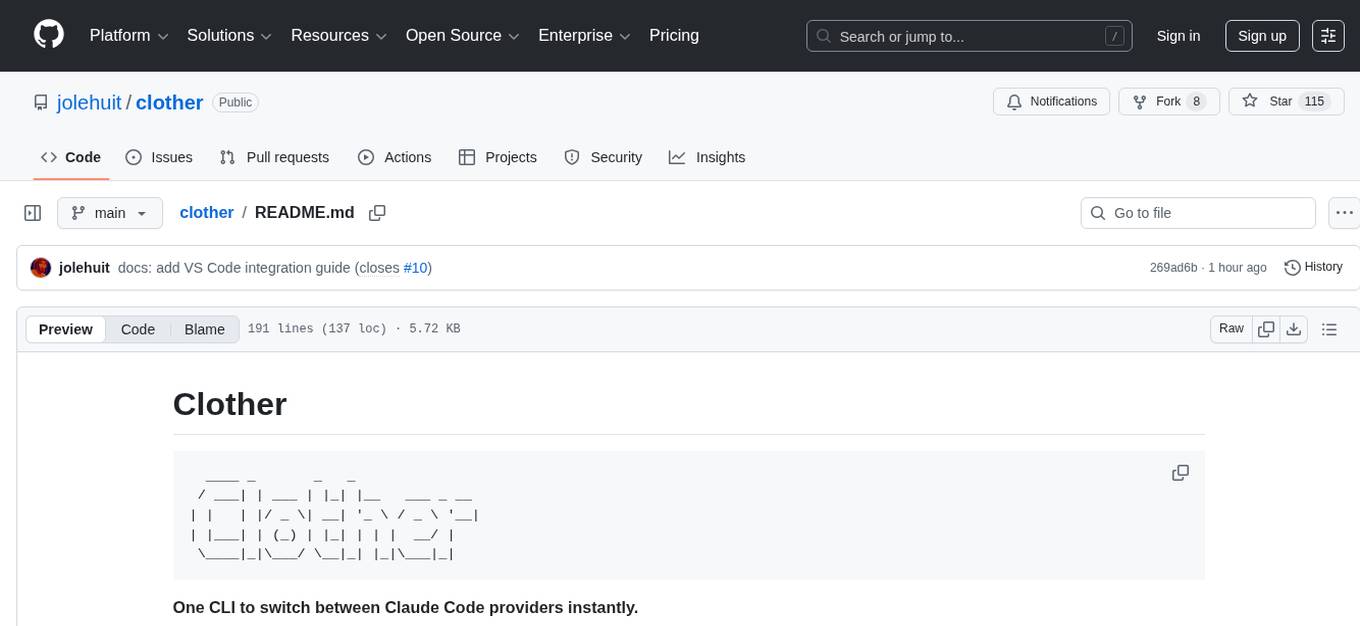
clother
Clother is a command-line tool that allows users to switch between different Claude Code providers instantly. It provides launchers for various cloud, open router, China endpoints, local, and custom providers, enabling users to configure, list profiles, test connectivity, check installation status, and uninstall. Users can also change the default model for each provider and troubleshoot common issues. Clother simplifies the management of API keys and installation directories, supporting macOS, Linux, and Windows (WSL) platforms. It is designed to streamline the workflow of interacting with different AI models and services.
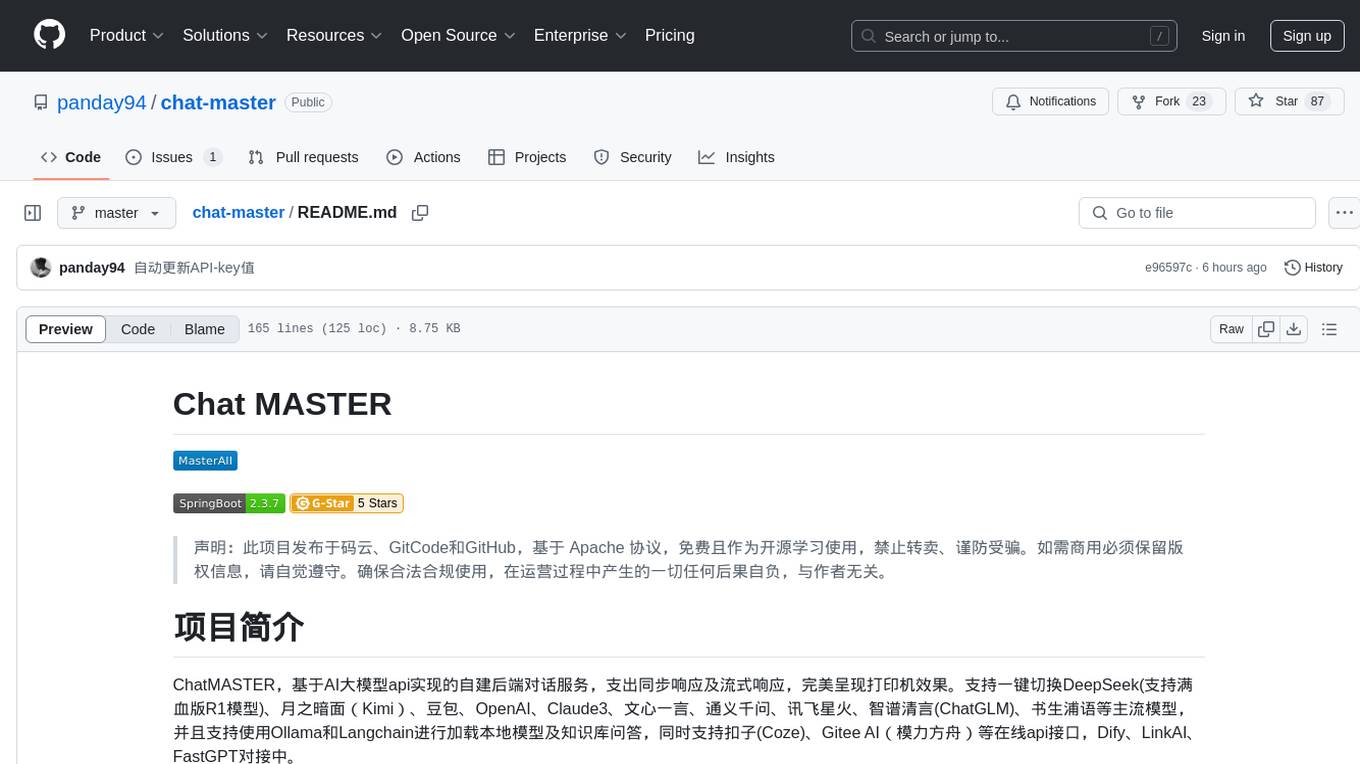
chat-master
ChatMASTER is a self-built backend conversation service based on AI large model APIs, supporting synchronous and streaming responses with perfect printer effects. It supports switching between mainstream models such as DeepSeek, Kimi, Doubao, OpenAI, Claude3, Yiyan, Tongyi, Xinghuo, ChatGLM, Shusheng, and more. It also supports loading local models and knowledge bases using Ollama and Langchain, as well as online API interfaces like Coze and Gitee AI. The project includes Java server-side, web-side, mobile-side, and management background configuration. It provides various assistant types for prompt output and allows creating custom assistant templates in the management background. The project uses technologies like Spring Boot, Spring Security + JWT, Mybatis-Plus, Lombok, Mysql & Redis, with easy-to-understand code and comprehensive permission control using JWT authentication system for multi-terminal support.
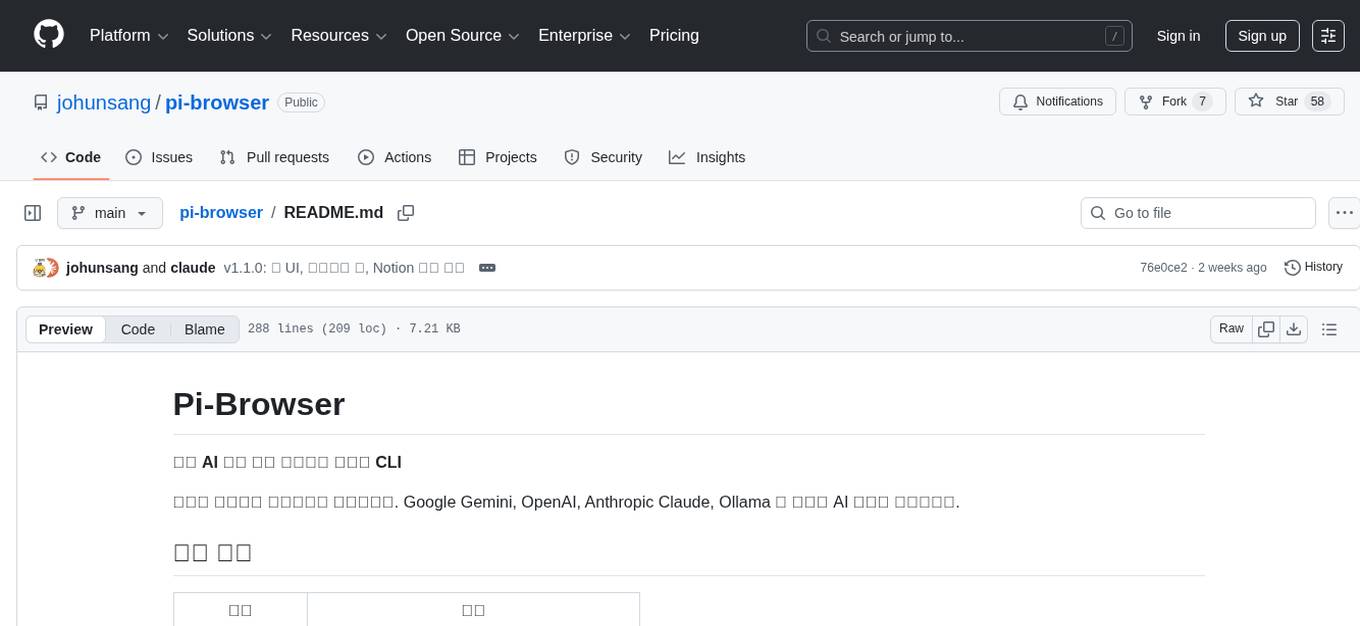
pi-browser
Pi-Browser is a CLI tool for automating browsers based on multiple AI models. It supports various AI models like Google Gemini, OpenAI, Anthropic Claude, and Ollama. Users can control the browser using natural language commands and perform tasks such as web UI management, Telegram bot integration, Notion integration, extension mode for maintaining Chrome login status, parallel processing with multiple browsers, and offline execution with the local AI model Ollama.
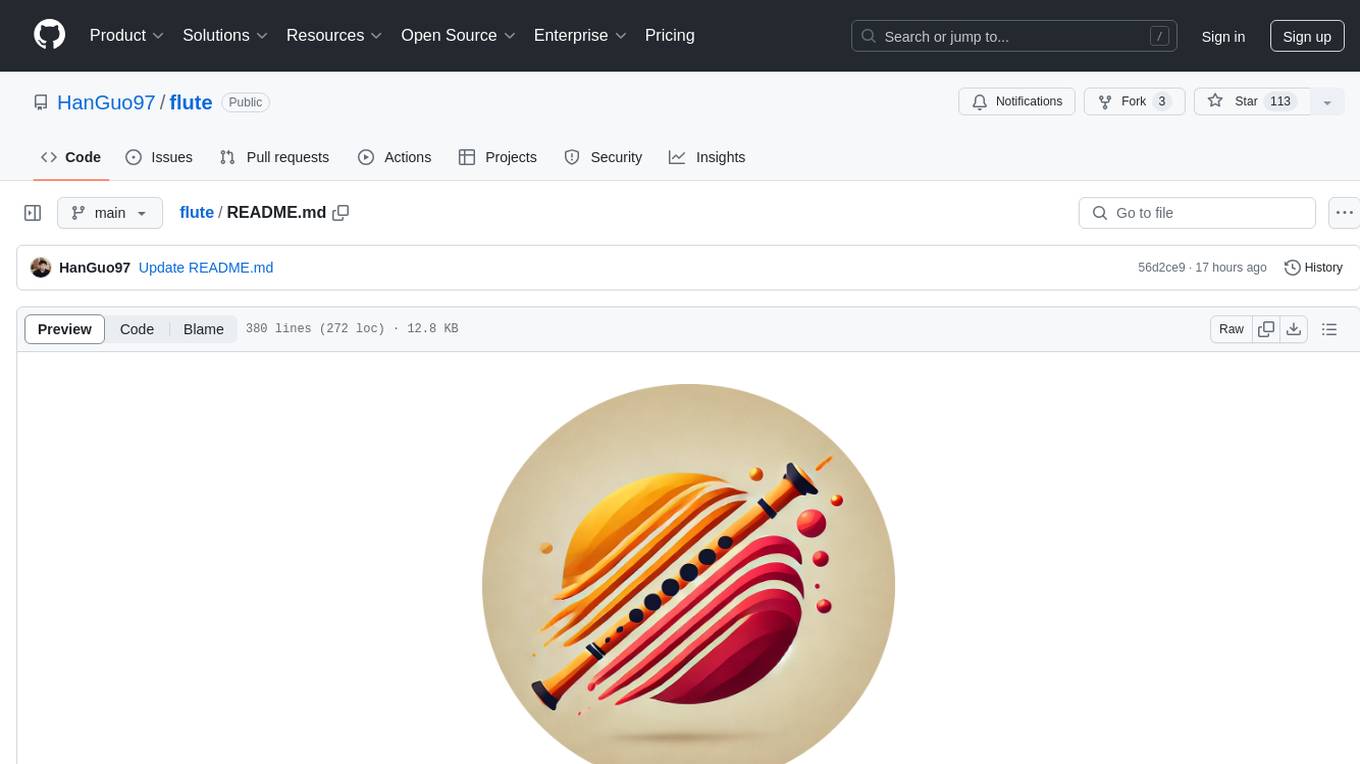
flute
FLUTE (Flexible Lookup Table Engine for LUT-quantized LLMs) is a tool designed for uniform quantization and lookup table quantization of weights in lower-precision intervals. It offers flexibility in mapping intervals to arbitrary values through a lookup table. FLUTE supports various quantization formats such as int4, int3, int2, fp4, fp3, fp2, nf4, nf3, nf2, and even custom tables. The tool also introduces new quantization algorithms like Learned Normal Float (NFL) for improved performance and calibration data learning. FLUTE provides benchmarks, model zoo, and integration with frameworks like vLLM and HuggingFace for easy deployment and usage.
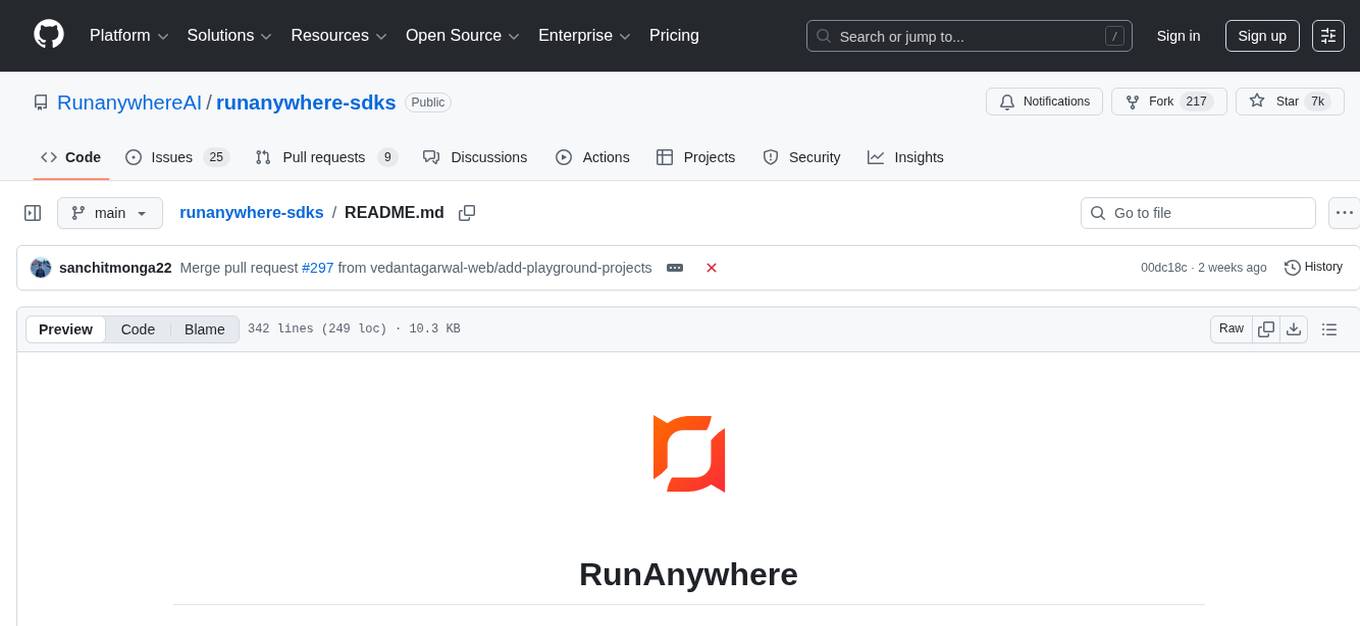
runanywhere-sdks
RunAnywhere is an on-device AI tool for mobile apps that allows users to run LLMs, speech-to-text, text-to-speech, and voice assistant features locally, ensuring privacy, offline functionality, and fast performance. The tool provides a range of AI capabilities without relying on cloud services, reducing latency and ensuring that no data leaves the device. RunAnywhere offers SDKs for Swift (iOS/macOS), Kotlin (Android), React Native, and Flutter, making it easy for developers to integrate AI features into their mobile applications. The tool supports various models for LLM, speech-to-text, and text-to-speech, with detailed documentation and installation instructions available for each platform.
For similar tasks
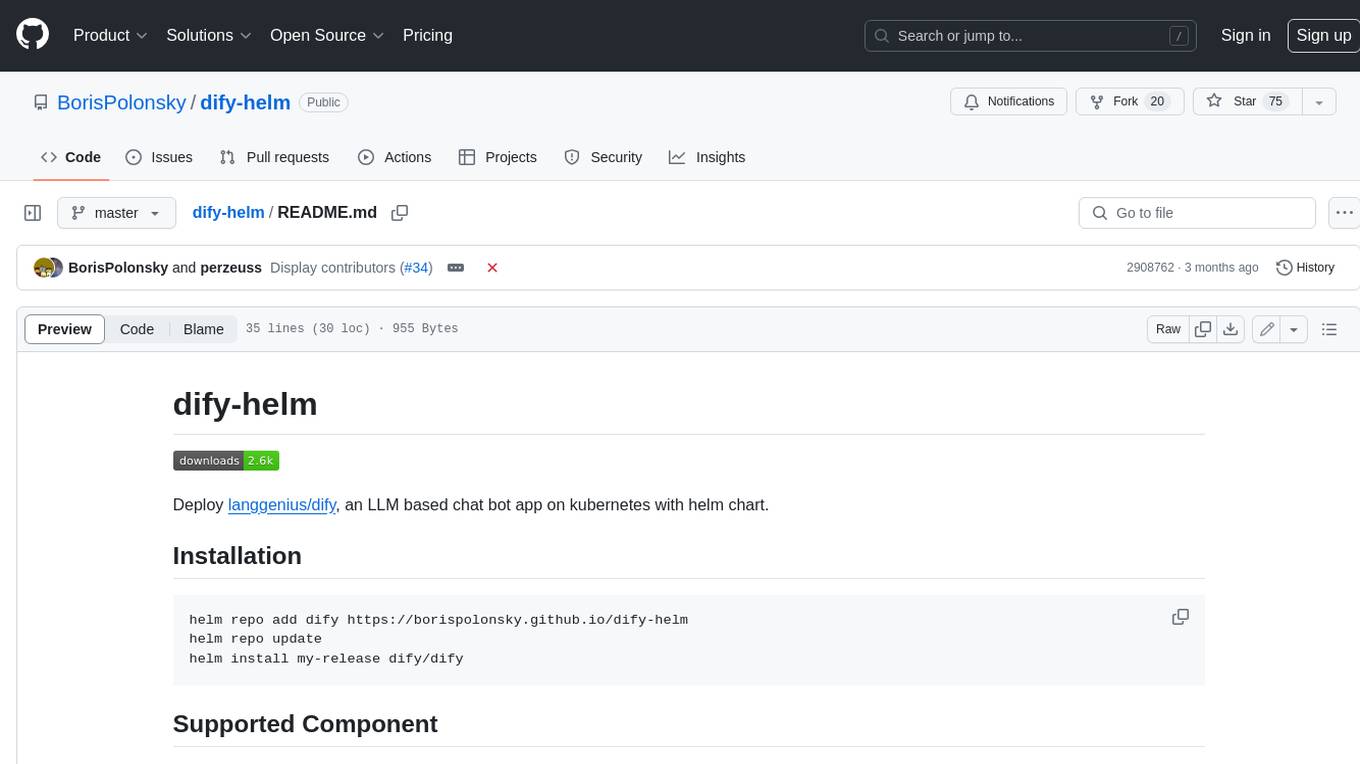
dify-helm
Deploy langgenius/dify, an LLM based chat bot app on kubernetes with helm chart.
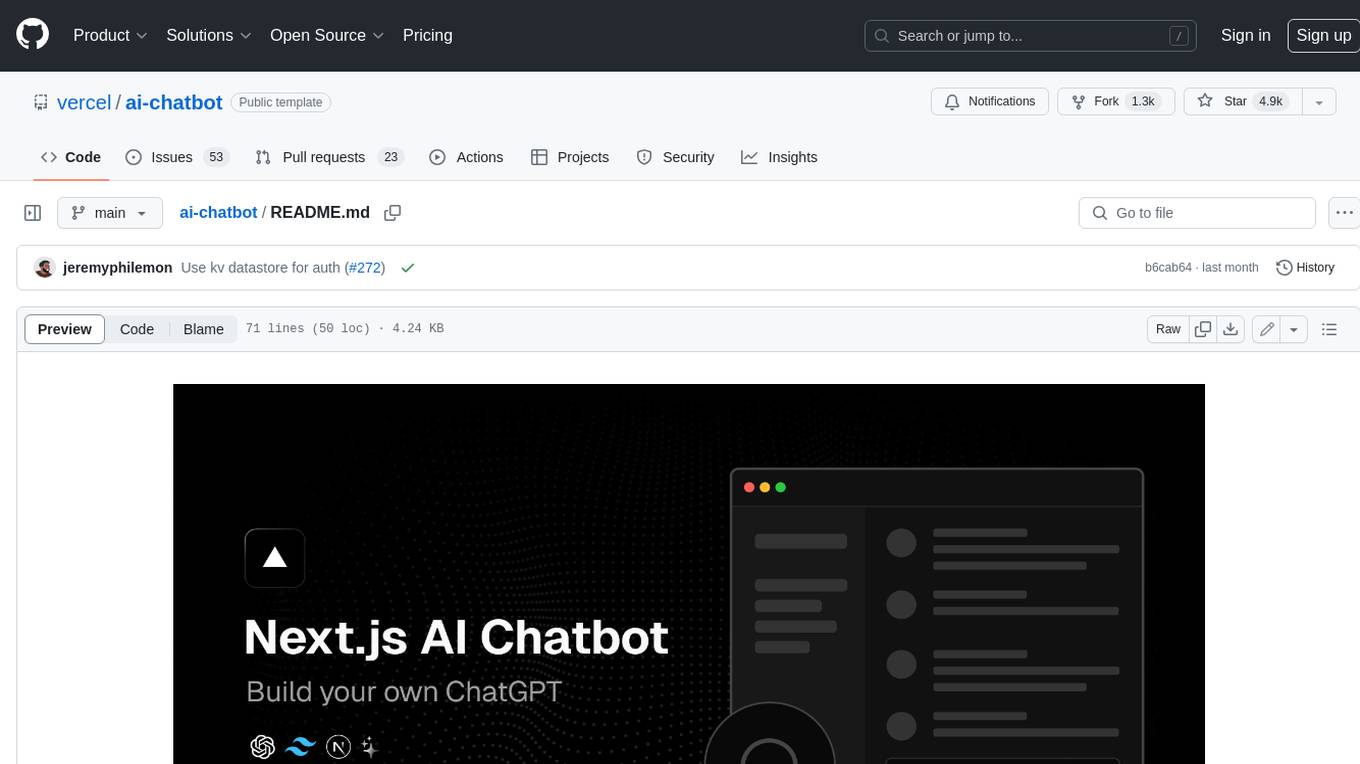
ai-chatbot
Next.js AI Chatbot is an open-source app template for building AI chatbots using Next.js, Vercel AI SDK, OpenAI, and Vercel KV. It includes features like Next.js App Router, React Server Components, Vercel AI SDK for streaming chat UI, support for various AI models, Tailwind CSS styling, Radix UI for headless components, chat history management, rate limiting, session storage with Vercel KV, and authentication with NextAuth.js. The template allows easy deployment to Vercel and customization of AI model providers.
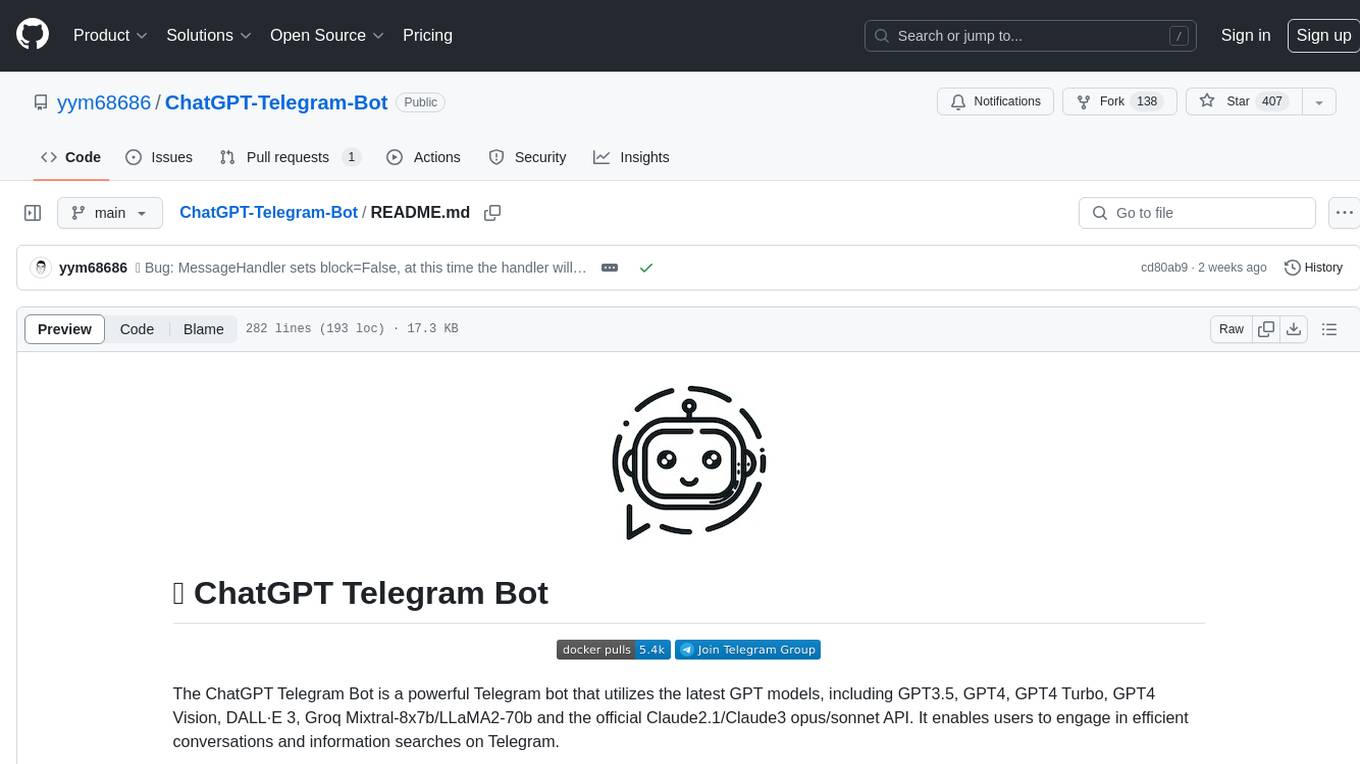
ChatGPT-Telegram-Bot
The ChatGPT Telegram Bot is a powerful Telegram bot that utilizes various GPT models, including GPT3.5, GPT4, GPT4 Turbo, GPT4 Vision, DALL·E 3, Groq Mixtral-8x7b/LLaMA2-70b, and Claude2.1/Claude3 opus/sonnet API. It enables users to engage in efficient conversations and information searches on Telegram. The bot supports multiple AI models, online search with DuckDuckGo and Google, user-friendly interface, efficient message processing, document interaction, Markdown rendering, and convenient deployment options like Zeabur, Replit, and Docker. Users can set environment variables for configuration and deployment. The bot also provides Q&A functionality, supports model switching, and can be deployed in group chats with whitelisting. The project is open source under GPLv3 license.
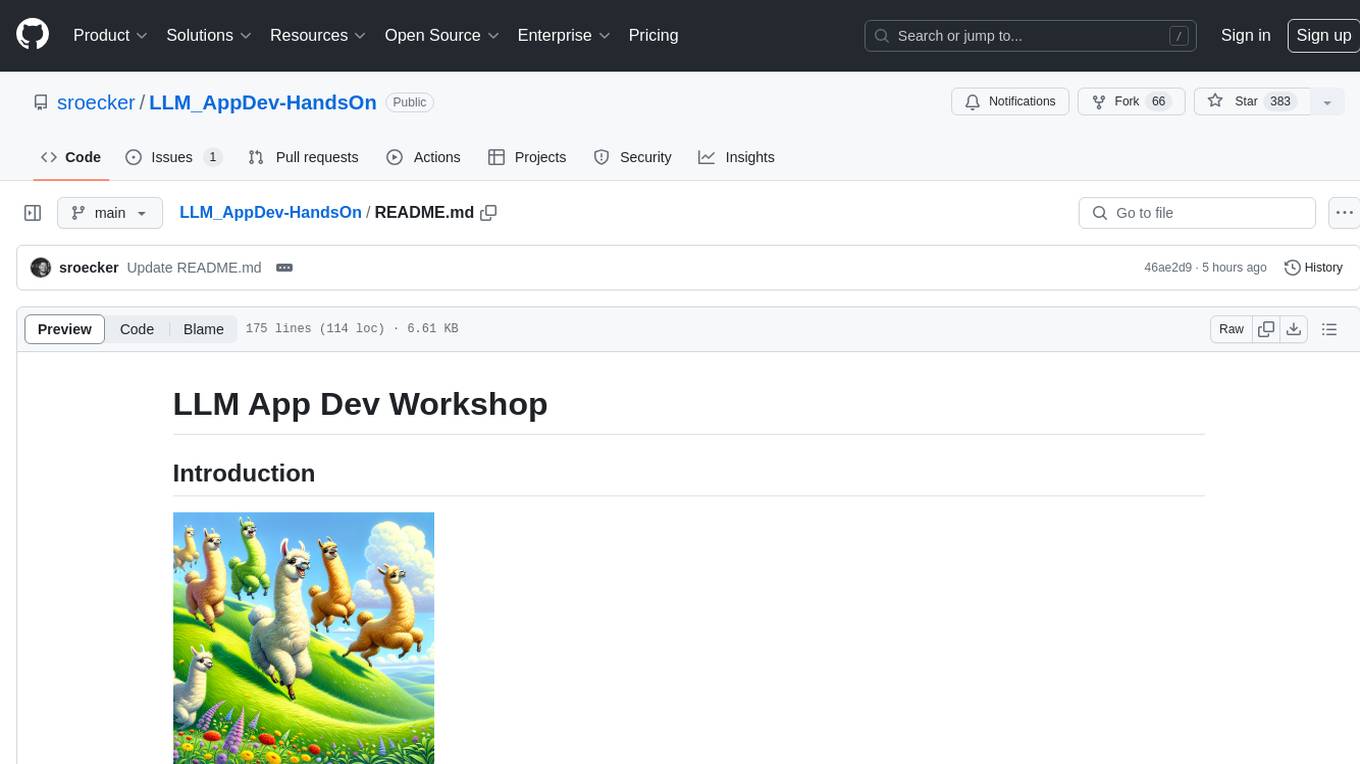
LLM_AppDev-HandsOn
This repository showcases how to build a simple LLM-based chatbot for answering questions based on documents using retrieval augmented generation (RAG) technique. It also provides guidance on deploying the chatbot using Podman or on the OpenShift Container Platform. The workshop associated with this repository introduces participants to LLMs & RAG concepts and demonstrates how to customize the chatbot for specific purposes. The software stack relies on open-source tools like streamlit, LlamaIndex, and local open LLMs via Ollama, making it accessible for GPU-constrained environments.
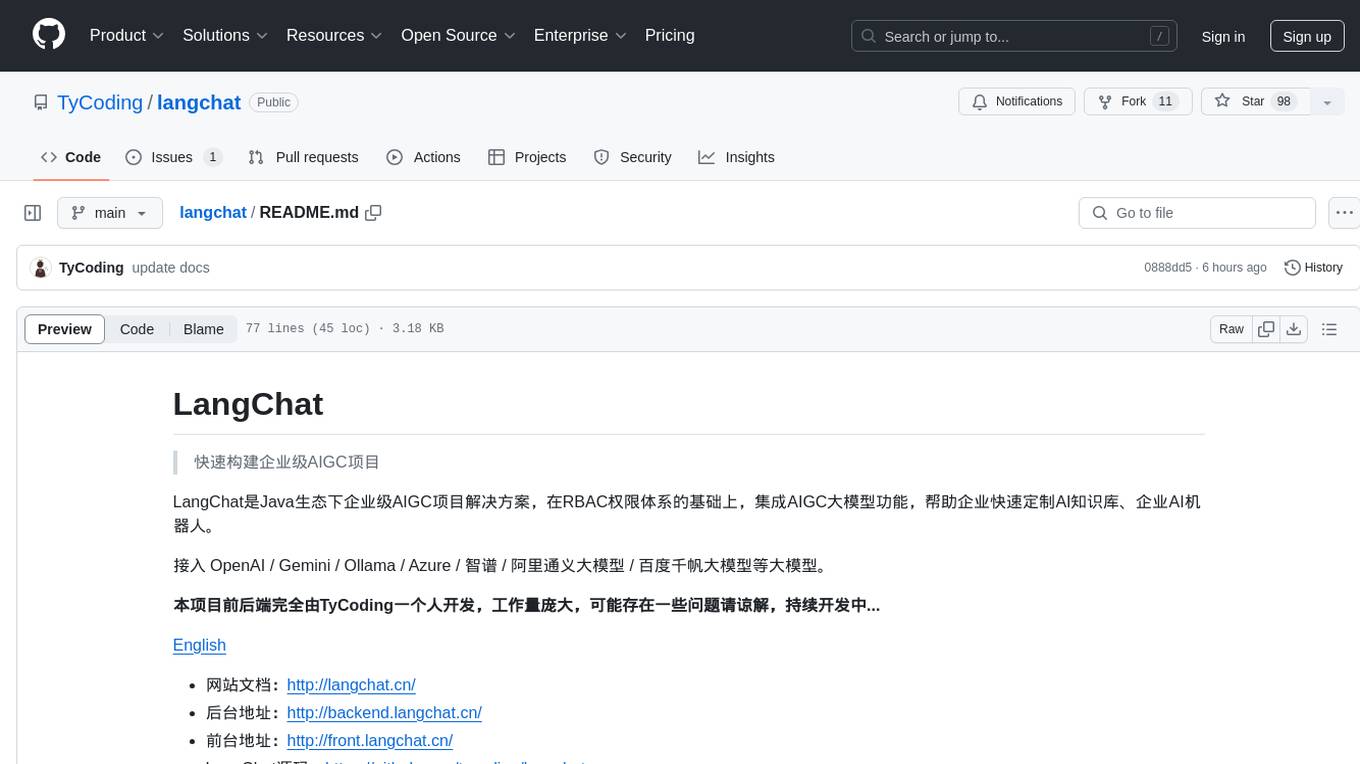
langchat
LangChat is an enterprise AIGC project solution in the Java ecosystem. It integrates AIGC large model functionality on top of the RBAC permission system to help enterprises quickly customize AI knowledge bases and enterprise AI robots. It supports integration with various large models such as OpenAI, Gemini, Ollama, Azure, Zhifu, Alibaba Tongyi, Baidu Qianfan, etc. The project is developed solely by TyCoding and is continuously evolving. It features multi-modality, dynamic configuration, knowledge base support, advanced RAG capabilities, function call customization, multi-channel deployment, workflows visualization, AIGC client application, and more.

ai-sdk-chrome-ai
The ai-sdk-chrome-ai repository is an open-source chatbot built with Next.js, the Vercel AI SDK, and the Chrome AI provider. It features Next.js App Router, Vercel AI SDK for interacting with the Gemini Nano model, shadcn/ui, Tailwind CSS styling, and Radix UI for headless component primitives. Users can deploy their own version of the chatbot to Vercel with one click and run it locally by installing dependencies and running the dev server. The repository provides a template for creating and customizing a chatbot powered by AI technology.

WeClone
WeClone is a tool that fine-tunes large language models using WeChat chat records. It utilizes approximately 20,000 integrated and effective data points, resulting in somewhat satisfactory outcomes that are occasionally humorous. The tool's effectiveness largely depends on the quantity and quality of the chat data provided. It requires a minimum of 16GB of GPU memory for training using the default chatglm3-6b model with LoRA method. Users can also opt for other models and methods supported by LLAMA Factory, which consume less memory. The tool has specific hardware and software requirements, including Python, Torch, Transformers, Datasets, Accelerate, and other optional packages like CUDA and Deepspeed. The tool facilitates environment setup, data preparation, data preprocessing, model downloading, parameter configuration, model fine-tuning, and inference through a browser demo or API service. Additionally, it offers the ability to deploy a WeChat chatbot, although users should be cautious due to the risk of account suspension by WeChat.
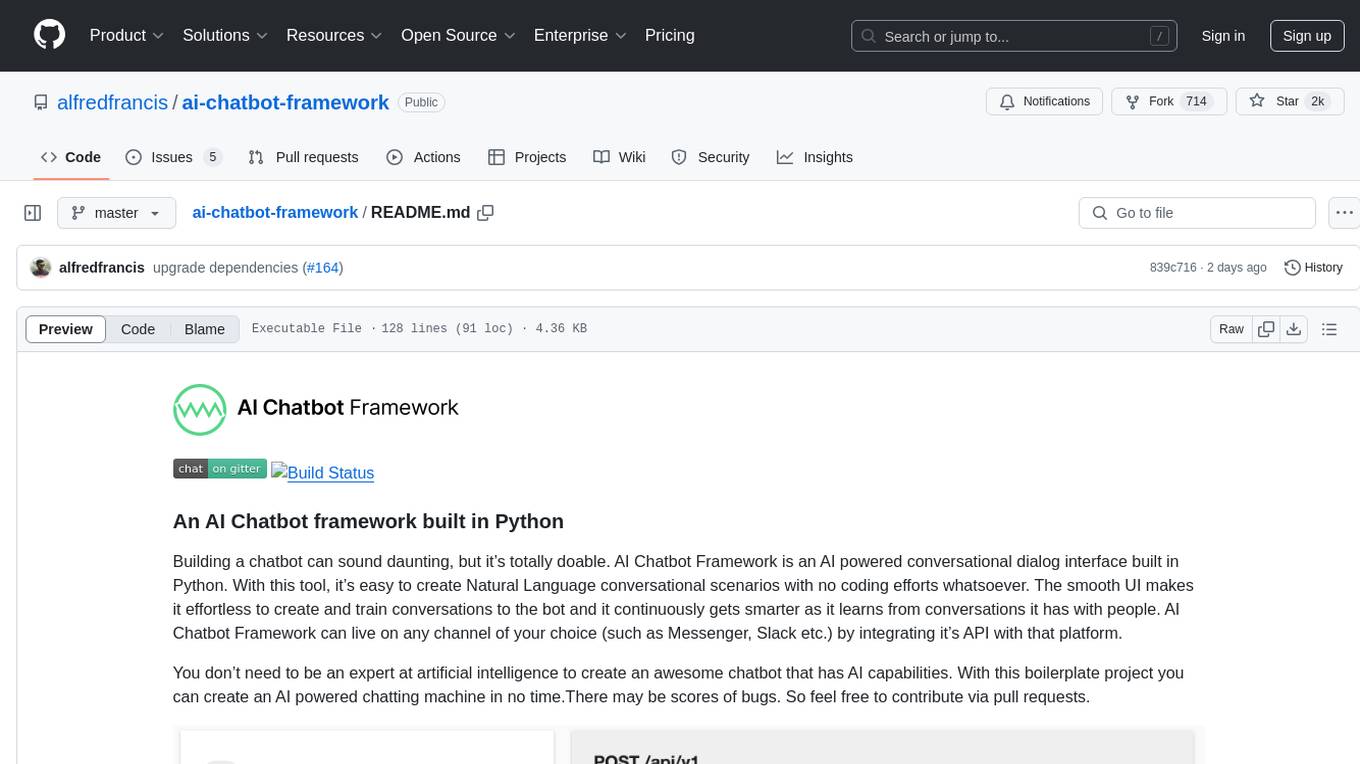
ai-chatbot-framework
An AI Chatbot framework built in Python. It allows users to easily create Natural Language conversational scenarios with no coding efforts. The tool continuously learns from conversations to improve its capabilities. It can be integrated with various channels like Messenger and Slack. Users can create AI-powered chatbots without expertise in artificial intelligence.
For similar jobs

weave
Weave is a toolkit for developing Generative AI applications, built by Weights & Biases. With Weave, you can log and debug language model inputs, outputs, and traces; build rigorous, apples-to-apples evaluations for language model use cases; and organize all the information generated across the LLM workflow, from experimentation to evaluations to production. Weave aims to bring rigor, best-practices, and composability to the inherently experimental process of developing Generative AI software, without introducing cognitive overhead.

LLMStack
LLMStack is a no-code platform for building generative AI agents, workflows, and chatbots. It allows users to connect their own data, internal tools, and GPT-powered models without any coding experience. LLMStack can be deployed to the cloud or on-premise and can be accessed via HTTP API or triggered from Slack or Discord.

VisionCraft
The VisionCraft API is a free API for using over 100 different AI models. From images to sound.

kaito
Kaito is an operator that automates the AI/ML inference model deployment in a Kubernetes cluster. It manages large model files using container images, avoids tuning deployment parameters to fit GPU hardware by providing preset configurations, auto-provisions GPU nodes based on model requirements, and hosts large model images in the public Microsoft Container Registry (MCR) if the license allows. Using Kaito, the workflow of onboarding large AI inference models in Kubernetes is largely simplified.

PyRIT
PyRIT is an open access automation framework designed to empower security professionals and ML engineers to red team foundation models and their applications. It automates AI Red Teaming tasks to allow operators to focus on more complicated and time-consuming tasks and can also identify security harms such as misuse (e.g., malware generation, jailbreaking), and privacy harms (e.g., identity theft). The goal is to allow researchers to have a baseline of how well their model and entire inference pipeline is doing against different harm categories and to be able to compare that baseline to future iterations of their model. This allows them to have empirical data on how well their model is doing today, and detect any degradation of performance based on future improvements.

tabby
Tabby is a self-hosted AI coding assistant, offering an open-source and on-premises alternative to GitHub Copilot. It boasts several key features: * Self-contained, with no need for a DBMS or cloud service. * OpenAPI interface, easy to integrate with existing infrastructure (e.g Cloud IDE). * Supports consumer-grade GPUs.

spear
SPEAR (Simulator for Photorealistic Embodied AI Research) is a powerful tool for training embodied agents. It features 300 unique virtual indoor environments with 2,566 unique rooms and 17,234 unique objects that can be manipulated individually. Each environment is designed by a professional artist and features detailed geometry, photorealistic materials, and a unique floor plan and object layout. SPEAR is implemented as Unreal Engine assets and provides an OpenAI Gym interface for interacting with the environments via Python.

Magick
Magick is a groundbreaking visual AIDE (Artificial Intelligence Development Environment) for no-code data pipelines and multimodal agents. Magick can connect to other services and comes with nodes and templates well-suited for intelligent agents, chatbots, complex reasoning systems and realistic characters.



